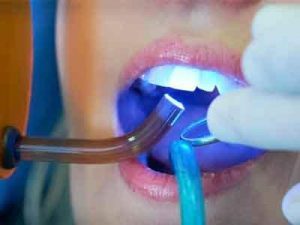- Home
- Editorial
- News
- Practice Guidelines
- Anesthesiology Guidelines
- Cancer Guidelines
- Cardiac Sciences Guidelines
- Critical Care Guidelines
- Dentistry Guidelines
- Dermatology Guidelines
- Diabetes and Endo Guidelines
- Diagnostics Guidelines
- ENT Guidelines
- Featured Practice Guidelines
- Gastroenterology Guidelines
- Geriatrics Guidelines
- Medicine Guidelines
- Nephrology Guidelines
- Neurosciences Guidelines
- Obs and Gynae Guidelines
- Ophthalmology Guidelines
- Orthopaedics Guidelines
- Paediatrics Guidelines
- Psychiatry Guidelines
- Pulmonology Guidelines
- Radiology Guidelines
- Surgery Guidelines
- Urology Guidelines
Elderly women with tooth loss more prone to high BP

According to a new study elderly women who have experienced tooth loss are more prone to developing high BP. The study has been published in the American Journal of Hypertension. In the past various studies have suggested an association between periodontal disease and tooth loss with hypertension, but the relationship remains unclear.
In the study, 36,692 participants were enrolled who were postmenopausal women in the Women's Health Initiative-Observational Study, in the US, who were followed annually from initial periodontal assessment in 1998 through 2015 for newly diagnosed hypertension.
The study observed a positive association between tooth loss and hypertension risk among postmenopausal women. Specifically, these women had approximately 20% higher risk of developing hypertension during follow-up compared to other women. The association was stronger among younger women and those with lower BMI.
The study suggests that older postmenopausal women who are losing their teeth may represent a group with higher risk of developing hypertension. There are several possible reasons for the observed association. One possible explanation is that as people lose teeth, they may change their diets to softer and more processed foods. These changes in dietary patterns could be associated with higher risk of hypertension. There was no association found between periodontal disease and hypertension.
The researchers involved in the study believe that improved dental hygiene among those at risk for tooth loss as well as preventive measures such as closer blood pressure monitoring, dietary modification, physical activity, and weight loss may reduce the risk of hypertension. The findings also suggest that tooth loss may serve as a clinical warning sign for increased hypertension risk.
"These findings suggest tooth loss may be an important factor in the development of hypertension," said the paper's senior author, Jean Wactawski-Wende. "Further research may help us to determine the underlying mechanisms by which these two common diseases are associated."
For further reference log on to :
https://doi.org/10.1093/ajh/hpy164

Disclaimer: This site is primarily intended for healthcare professionals. Any content/information on this website does not replace the advice of medical and/or health professionals and should not be construed as medical/diagnostic advice/endorsement or prescription. Use of this site is subject to our terms of use, privacy policy, advertisement policy. © 2020 Minerva Medical Treatment Pvt Ltd